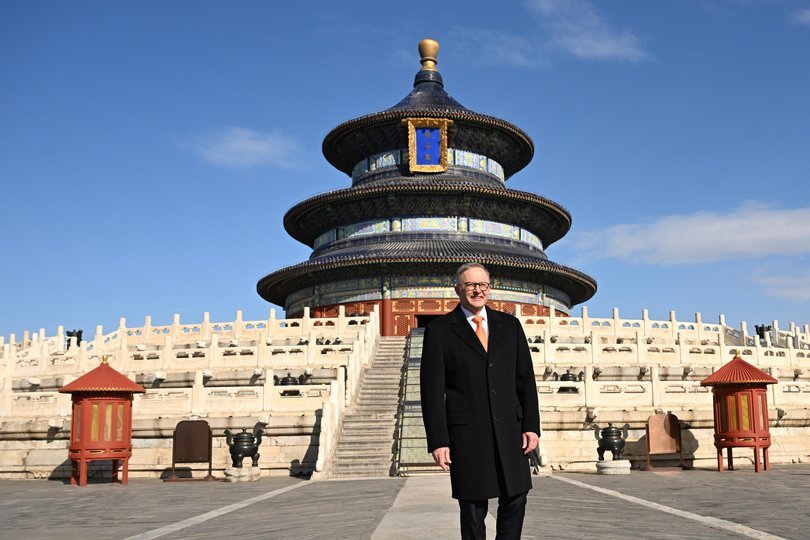Canberra (TDI): Australian Prime Minister, Anthony Albanese, embarks on his second official visit to China since he is in government, today. The visit comes in the backdrop of Trump’s tariff blitz and China’s growing military build-up in the region.
The six-day long trip, spanning three Chinese cities, signals a considerable return to stability in relations between both states after a period of trade war and restrictions on each other’s exports.
China gave Australia a cold shoulder in trade after the latter’s call for investigation into the COVID-19’s origin in 2020. For this reason, as Albanese now leaves for an elaborate state visit, he is accompanied by a delegation of business leaders and CEOs to get the maximum output as far as trade is concerned.
A little backdrop
Trump has recently announced a major tariff roll-out on countries including Australia, which is its key strategic partner and ally.
Now Australia is walking a tightrope as it is involved in the AUKUS submarine deal with its longstanding partners, the US and the UK. The deal is obviously criticized by China and is also under review by the US currently.
In this backdrop, Albanese’s visit to China – the major US competitor, will be seen even more cautiously if not frowned upon by Trump.
China is a major export destination for Australia, with the latter’s 25% export products finding way into Chinese markets.
These exports slumped exponentially when China placed restrictions on Australian exports between 2020 and 2024 due to the COVID row. However, these restrictions have been lifted and eased out since last year and trade has almost been restored.
What More to know about this visit
The trip will last till July 18, 2025. Both sides disagree and are somewhat on opposite poles on a variety of issues, especially regional security.
But at the same time, they recognize these differences and are willing to cooperate despite them. In the larger picture, Trump’s tariffs are pushing away US’ long term allies, putting them in China’s lap.
The geopolitical alignments that Australia has traditionally relied upon seem brittle since Trump’s foreign policy takes an unprecedented course. Australia might not be ready to face the region’s security issues all on its own but it is certainly ready to decouple geopolitics from trade.
Fakhar Bhatti
Fakhar Bhatti has a BS in International Relations from Bahria University, Islamabad. His research interests include diplomacy, international law, and human rights.



